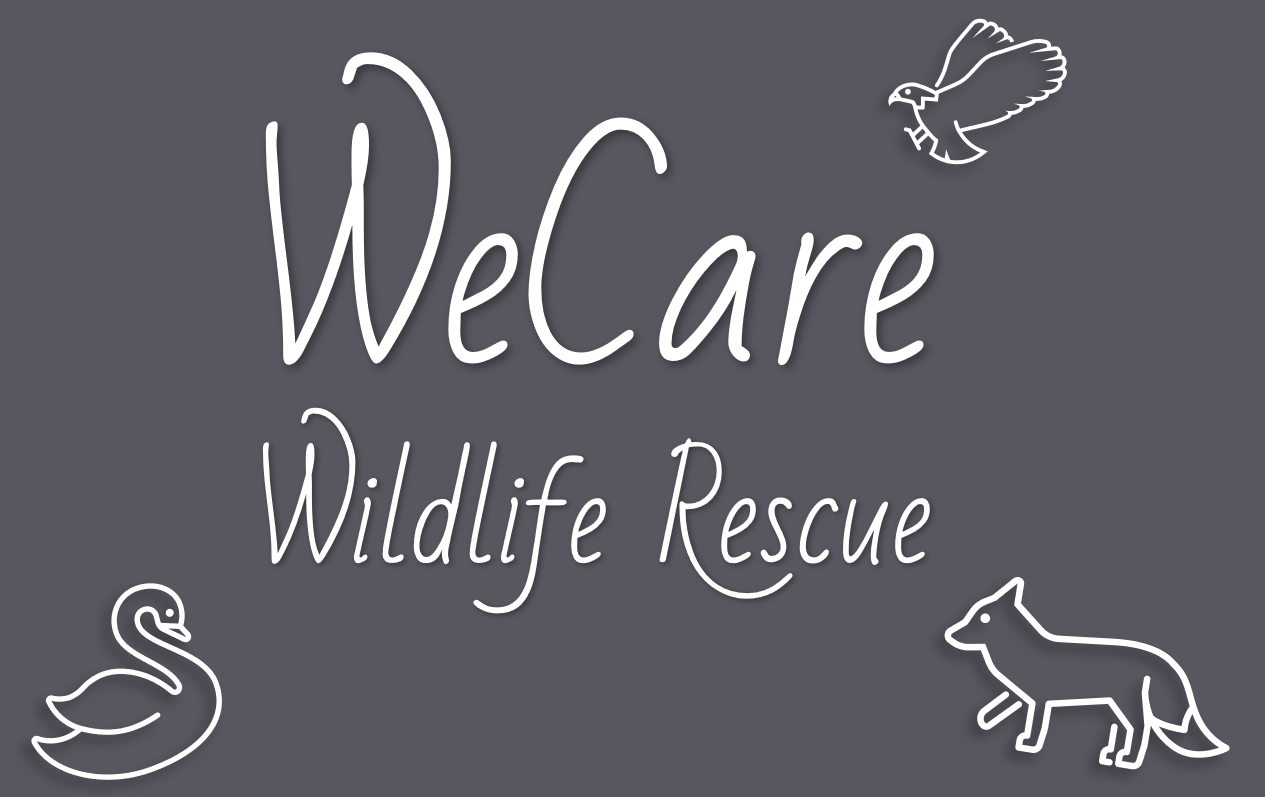With so much attention being paid to climate change and the impacts of our actions on the natural environment, we are all becoming increasingly aware of the pressures on our wildlife. We are also realising how important the natural environment and the creatures that live within it are to our own health and wellbeing. This heightened awareness has led to an increase in demand on the services being provided by animal rescue centres, at the very time when spiralling energy and food prices have forced many such organisations to close, adding yet more pressure on those that have managed to survive. Fortunately for our region, WeCare Wildlife Rescue is not only still operating, but growing, largely thanks to its expanding volunteer base, its “home-run” operation and financial donations helping to keep costs at a manageable level.
Originally, WeCare was an acronym for Wildlife Essex Care and Rehabilitation Enterprise, but, as word has spread of its existence beyond the Essex borders, the present name of WeCare Wildlife Rescue was adopted. Founded by Gill Lewis in 2017, the Brantham-based wildlife rescue centre is dedicated to not only providing life-saving care for sick and injured animals, but also their rehabilitation and return to the wild, whenever possible. Formerly a veterinary nurse, Gill had previously managed a kennel, cattery and dog-training centre, as well as overseeing Crofters Rescue, a facility dedicated to rehabilitating and re-homing unwanted pets. On settling in the area, she swiftly gained recognition for her commitment to animal welfare. Initially called upon to assist a kestrel and, then, an injured swan, word about Gill’s efforts gradually spread and so, WeCare was born.
As WeCare became better known, donations started to come in, from both individuals and local businesses. Donations are the life-blood of any volunteer-run organisation and for WeCare it has meant that vital items of equipment can be purchased (for example, incubators for very sick animals and a microscope for detecting parasites), as well as food and medical supplies. Local Rotary clubs and chambers-of-commerce have been at the forefront of providing financial support, reflecting the recognition of service WeCare provides to the community.
Over the six years since it was established, WeCare has looked after hundreds of animals. Not surprisingly, given its location close to the River Stour and its estuary, a majority of its patients have been birds, particularly waterfowl and seabirds, but also birds-of-prey, song birds, woodpeckers and garden birds. Mammalian patients have included countless hedgehogs, a growing number of deer, a stoat and the occasional badger and fox cub. Given the increasing numbers of animals being brought to the Centre, Gill has had to provide training to volunteers so that care can be administered at other locations across the region. Spring is always an incredibly busy time, with the facilities and demands on time stretched to the limit, so having trained volunteers will mean that WeCare’s operations can become more sustainable.
WeCare has been particularly successful in caring for swans, including, unfortunately, several that had been attacked by dogs. In severe cases, the birds often need to be transported to veterinary centres for specialist treatment and then on to dedicated wildlife sanctuaries. This is when the volunteers truly come into their own. In addition to these rescue operations, WeCare actively looks after the local swan flock, monitoring the health of the birds and providing them with supplementary winter feed, if necessary, when natural sources of food can be scarce. Feeding the swans with nutritious food specifically designed for waterfowl helps to maintain the health of the flock and build up defences against disease and infections, such as bird ‘flu.
As mentioned at the start of this article, being a home-run operation has the advantage of lower costs, but it also has the disadvantage of limiting the number of animals that can be cared for. WeCare has ambitions to expand, but will first focus on consolidating what services it is able to provide, putting further emphasis on education and awareness-raising of when an animal needs help and when it should be left alone, training volunteers and strengthening relationships with vets and other animal welfare organisations, so that assistance can be provided in a much more coordinated way. All this will require continued donations and the help of volunteers. WeCare is a community organisation and relies on the support its community can provide. If you would like to make a donation, please visit the centre’s website at www.wecarewildlife.co.uk. Any donation, not matter how small, is gratefully received. The website, still under development, will also provide advice on what to do if you find an animal in distress, plus news on rescues and fund-raising events.
By Stefaan Simons, Press Officer, WeCare Wildlife Rescue
